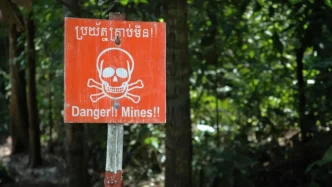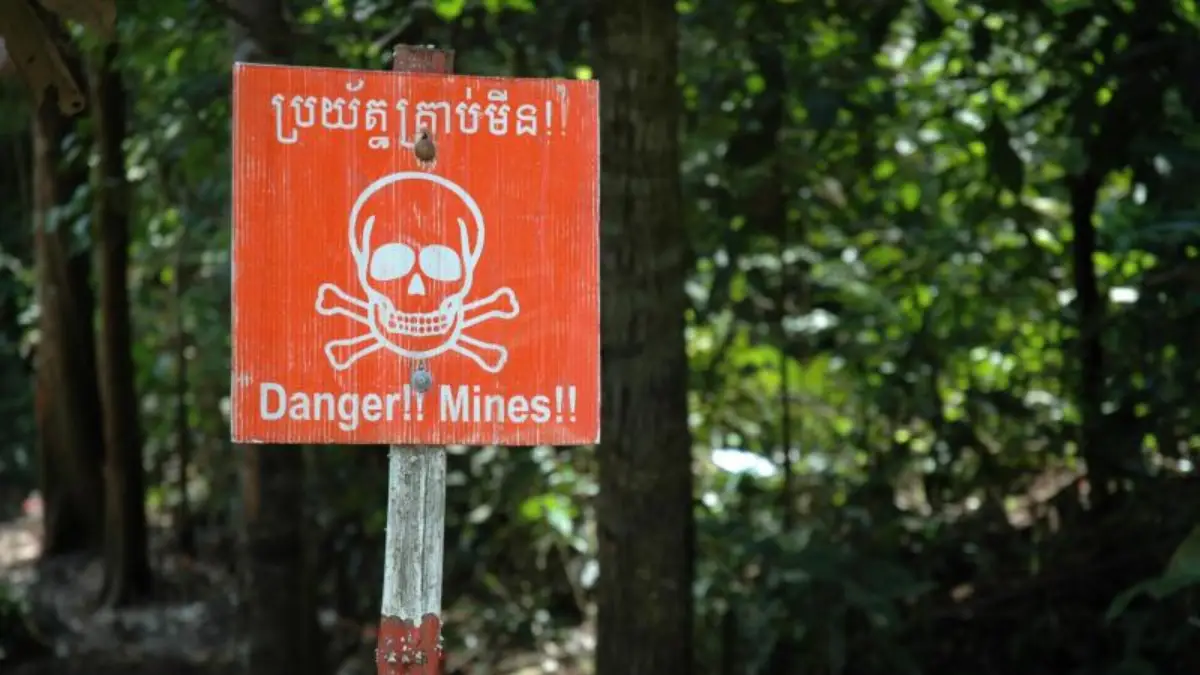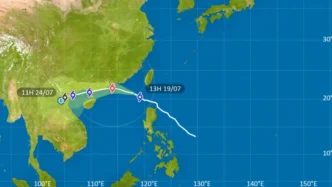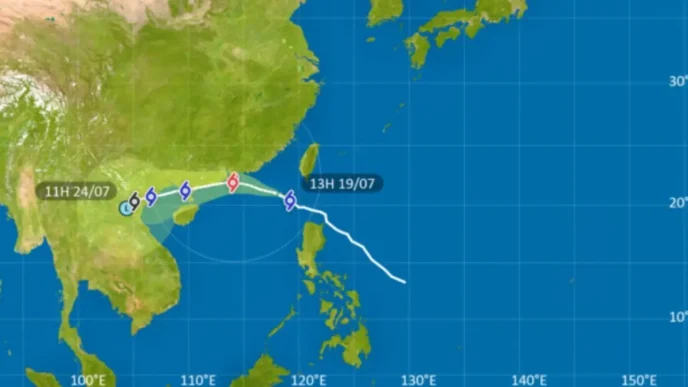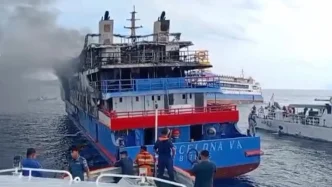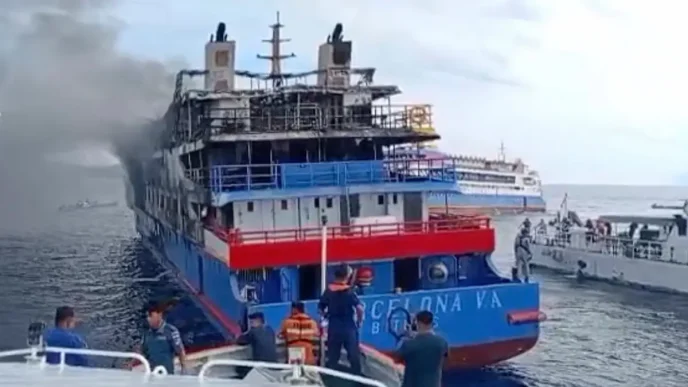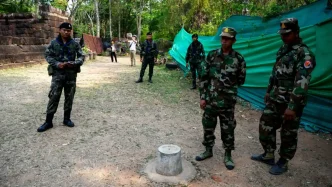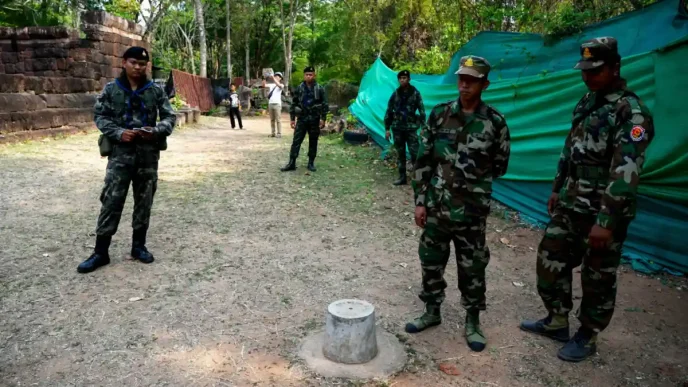Cambodia has issued a sharp rebuttal to accusations from Thailand regarding a landmine explosion that injured three Thai soldiers on July 16, 2025, near the contested border area in Preah Vihear province. The Cambodian Ministry of National Defence has denied any responsibility, asserting that the incident occurred due to an unauthorized incursion by Thai troops into Cambodian territory, a region known to be contaminated with war-era landmines.
A Tense Border Flashpoint
The incident, which took place near Techo Morokot village in Choam Ksan district, has reignited longstanding tensions between Cambodia and Thailand over their shared border, particularly around historical sites like the ancient Khmer temple Prasat Ta Muen Thom (also known as Prasat Ta Moan Thom in Khmer). This area, located near Oddar Meanchey and Preah Vihear provinces, has been a point of contention for decades, with both nations claiming sovereignty over certain territories based on historical treaties and modern agreements.
According to Lieutenant General Maly Socheata, undersecretary of state at the Cambodian Ministry of National Defence, the Thai soldiers strayed from patrol routes mutually agreed upon in a 2000 memorandum of understanding (MoU 2000). Instead, they entered Cambodian territory as defined by a 1:200,000-scale map derived from the Franco-Siamese treaties of 1904 and 1907. “This was a clear violation of the MoU and of Cambodian sovereignty” Socheata stated on July 20, 2025. He added that Thailand had been repeatedly warned about the dangers of deviating into mine-contaminated zones.
The Cambodian ministry emphasized that the landmine responsible for the injuries was not recently planted by their forces but was a remnant of the country’s decades-long conflicts, which left vast areas littered with unexploded ordnance. Cambodia, a signatory to the Ottawa Convention banning anti-personnel landmines, has been internationally recognized for its extensive demining efforts. The ministry’s statement rejected Thai claims as unsubstantiated and misleading, countering any suggestion of hostile intent.
Questions Over Thai Military Intent
The Cambodian response has raised pointed questions about the decision-making within the Thai military. A statement from the ministry queried why Thai troops were ordered to patrol outside the agreed routes in a known minefield. “Was this a reckless decision, or a calculated provocation?” the statement asked, reflecting growing frustration in Phnom Penh over what they see as a breach of trust.
Border disputes between the two nations are not new. The area near Prasat Ta Muen Thom and other temples like Ta Mone Touch and Ta Krabey has been a flashpoint, with both sides occasionally accusing the other of overstepping boundaries. While military skirmishes have largely been avoided in recent years, incidents like the July 16 explosion highlight the fragility of peace in the region. The Cambodian government reiterated its commitment to resolving disputes through peaceful means and international legal mechanisms, such as the International Court of Justice (ICJ), which has previously ruled on related border issues.
“Not even a single millimetre of Cambodian land will be lost, regardless of the cost” the ministry declared, signaling a firm stance against any perceived encroachment. The Royal Cambodian Armed Forces have also expressed full support for the government’s position, including pursuing legal resolutions to lingering territorial disagreements.
A History of Conflict and Landmines
The Cambodia-Thailand border is not only a geopolitical hotspot but also a tragic legacy of past wars. During Cambodia’s civil conflicts from the 1970s to the 1990s, vast swathes of land near the border were heavily mined by various factions, including the Khmer Rouge. These landmines continue to pose a deadly risk to both civilians and military personnel, with demining operations ongoing but far from complete. According to reports from local sources, the area near Techo Morokot village remains particularly hazardous due to its history as a former war zone.
The July 16 incident serves as a grim reminder of this unresolved danger. While both Cambodia and Thailand have pledged cooperation on border security and demining initiatives, mutual trust remains elusive. Thai authorities have urged Cambodia to take responsibility for the incident, with some reports indicating discussions of potential retaliation. However, Cambodia’s firm denial and emphasis on Thai troops’ unauthorized entry suggest that accountability will remain a contentious issue.
Thai Perspective and Regional Implications
From Bangkok, the narrative differs. Thai military officials have claimed that their soldiers were patrolling a newly created route when the explosion occurred, implying that the landmine may have been recently laid. This accusation has been met with skepticism in Phnom Penh, where officials argue that no evidence supports such a claim. The Thai army has also issued warnings to Cambodian tourists to adhere strictly to Thai laws, signaling a potential escalation in rhetoric if not in action.
The incident has broader implications for regional stability in Southeast Asia, where border disputes often test diplomatic relations. Both nations are members of the Association of Southeast Asian Nations (ASEAN), which promotes dialogue and peaceful conflict resolution. However, historical grievances and territorial claims can strain even the most robust regional frameworks. Analysts suggest that without a renewed commitment to joint demining efforts and adherence to existing agreements like the MoU 2000, similar incidents could recur, further eroding trust.
Legal and Diplomatic Pathways
Cambodia’s mention of the ICJ as a mechanism for resolving disputes points to a preference for legal recourse over military confrontation. The court has previously weighed in on the border issue, notably in a 2013 ruling that clarified sovereignty over parts of the area near the Preah Vihear temple, another contested site not far from the location of the recent incident. While that ruling favored Cambodia, implementation and mutual recognition of boundaries remain incomplete, leaving room for misinterpretation and conflict.
Some Cambodian officials have publicly called for Thailand to seek an ICJ ruling to address what they describe as landmine confusion, though no formal proposal has emerged from Bangkok. For now, the focus in Phnom Penh appears to be on defending national sovereignty while avoiding escalation. The ministry’s statement underscored a commitment to peace and stability but warned that any further violations would meet firm resistance.
Human Cost and Future Challenges
Beyond the diplomatic sparring, the human cost of the landmine incident cannot be overlooked. The three injured Thai soldiers are among countless victims of unexploded ordnance in the region, a problem that affects rural communities on both sides of the border. Farmers, children, and soldiers alike face daily risks in areas where mines remain hidden, often buried for decades. International organizations and local NGOs have long called for increased funding and cooperation to accelerate demining, but progress is slow due to the scale of contamination and limited resources.
The incident also raises questions about military training and decision-making. If Thai troops were indeed ordered into a known minefield, as Cambodia alleges, it points to a potentially dangerous lapse in judgment. Conversely, if the route was believed to be safe, it underscores the urgent need for better mapping and communication between the two militaries. Either way, the fallout from July 16 is a stark reminder of the unresolved issues that continue to haunt this border region.
As both nations navigate the aftermath, the path forward remains uncertain. Will this incident prompt a renewed push for dialogue and cooperation, or will it deepen mistrust? With historical animosities and national pride at stake, the answer may depend on whether leaders in Phnom Penh and Bangkok can prioritize peace over provocation. For now, the disputed border near Prasat Ta Muen Thom stands as a symbol of both shared heritage and enduring division, a place where history’s scars—both literal and figurative—refuse to fade.

